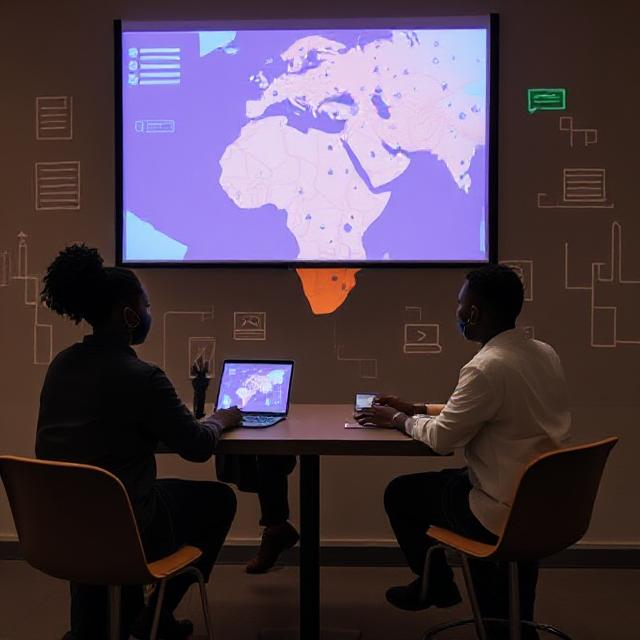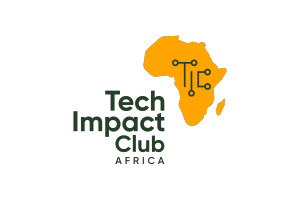
Africa is experiencing a digital revolution, with technology playing a key role in economic growth, innovation, and job creation. However, a digital skills gap threatens to slow down progress, as many young Africans lack the necessary training and experience to compete in the global tech industry. Bridging this gap is critical for empowering Africa’s next generation of tech leaders and unlocking the continent’s full potential.
Despite a young and dynamic population, many African countries struggle with a shortage of skilled tech professionals. Key challenges include:
Limited Access to Quality Tech Education – Many schools lack up-to-date curricula, trained instructors, and access to modern technology-focused education and training programs.
High Cost of Training – Advanced digital skills training can be expensive and inaccessible for many young Africans.
Mismatch Between Education & Industry Needs – University programs often fail to equip students with the skills demanded by the job market.
Low Digital Literacy Rates – Many students and workers lack basic digital skills, limiting their ability to engage with technology.
Why Digital Skills Matter
Bridging the digital skills gap is not just about jobs—it’s about economic growth, innovation, and global competitiveness. By empowering young Africans with tech skills, we can:
Boost Job Creation – The tech industry is one of the fastest-growing job sectors in Africa.
Encourage Innovation & Startups – Skilled entrepreneurs can build homegrown solutions to local challenges.
Attract Global Investment – A digitally skilled workforce makes Africa more attractive for international tech firms.
Enhance Problem-Solving – Digital tools enable young Africans to address challenges in healthcare, agriculture, education, and more.
Key Initiatives to Bridge the Digital Skills Gap

Tech Bootcamps & Online Learning Platforms
Programs like Battle Covid-19 Initiative, MumsWhoCode (MWC) – Digital Women Bootcamp, Digital Health Africa (DHA) – Digital Health Student Bootcamp, and Empowering Women in Data Project, offer intensive coding bootcamps to train African youth in software development and other tech skills. Online platforms such as Coursera, Udemy, and Google Digital Skills for Africa provide accessible, affordable learning opportunities.
International and Private Sector Partnerships
International Tech giants like Google, Microsoft, and IBM and Indigenous Tech Innovation NGOs like Tech Impact Club Africa are investing in digital training programs to upskill young Africans. For example, Google’s Grow with Google Africa, Empowering Women in Data, Digital Health Student Bootcamp initiative has trained millions in digital skills.
University Curriculum Upgrades
Educational institutions should modernize curricula to match industry needs. This includes integrating courses on AI, cybersecurity, cloud computing, and data science into university programs.
STEM Education for Young Learners
Encouraging science, technology, engineering, and mathematics (STEM) education from an early age can help build a strong pipeline of future tech leaders. Organizations like Tech Impact Club Africa and Girl Coders Zambia, and Mums Who Code are leading efforts to introduce young Africans to coding and robotics.
Mentorship & Tech Communities
Tech hubs like Tech Impact Club Africa, Mentor An African Child Initiative (MACI), Digital Health Africa (DHA), Mums Who Code (MWC), and Girl Coders Zambia provide mentorship, funding, and networking opportunities for aspiring tech professionals.
The Road Ahead: What Needs to Be Done?
To fully bridge the digital skills gap, African leaders must:
Invest in digital infrastructure – Ensure widespread internet access and affordable technology.
Support tech education & training – Provide funding for tech education initiatives.
Encourage women in tech – Close the gender gap by supporting women in STEM.
Foster an innovation-driven culture – Encourage entrepreneurship and homegrown tech solutions.
Conclusion
Bridging Africa’s digital skills gap is essential for economic growth, job creation, and global competitiveness. By investing in tech education, fostering innovation, and ensuring equal opportunities for all, Africa can empower a new generation of tech leaders who will drive the continent’s digital transformation. The future of Africa’s tech ecosystem depends on the actions we take today—let’s build a digitally skilled Africa!


